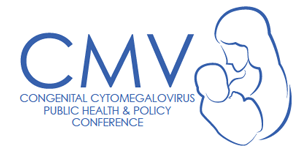Abstract Details
9/24/2018 | 11:15 AM - 11:45 AM | Emerald Ballroom I/II
Parents’ Knowledge and Attitudes about Cytomegalovirus Screening
Objective: One approach to identifying asymptomatic infants infected with cytomegalovirus (CMV) is to screen infants for CMV after a failed newborn hearing screen (NBHS). Utah was the first state to mandate CMV screening for these infants. Utah’s law also created a CMV educational program targeting women of childbearing ages. Data from the 24 months after the law was implemented showed that sixty-two percent of infants who never passed NBHS underwent CMV screening. Little is known about how parents’ perceive CMV screening. The study examined parents’ attitudes and knowledge of cytomegalovirus screening.
Methods: Three hundred sixty-four parents whose children were being seen in an Otolaryngology clinic at a tertiary pediatric hospital were surveyed about their knowledge of and attitudes towards CMV and CMV screening.
Results: Fifty-two percent of parents were not sure if their child had been screened for CMV. The majority of parents agreed or strongly agreed that they would want their infant screened for CMV even if it was not performed routinely; 11% disagreed, and 39% were neutral. Few parents (14%) were worried that CMV screening would lead to unneeded doctor visits and expenses, and few (7%) of parents were more worried about stigma of CMV than about the health effects. Sixty-nine percent would be willing to pay $20 for CMV screening. The majority of parents were unsure how CMV was spread, the symptoms of congenital CMV, and why CMV screening of infants was important. Seventy two percent of parents did not know that CMV screening was required by law in Utah if an infant failed NBHS.
Conclusions: Attitudes towards CMV screening were generally positive. Parents were frequently unaware of CMV and its implications. Greater efforts to educate parents about CMV are necessary.
- Describe parental knowledge of CMV screening.
- Identify parental concerns about CMV screening.
- Identify the implications of the Utah CMV law on parents’ knowledge and concerns about CMV screening.
Presentation:
17739_9663AlbertPark.pdf
17739_9663MarissaDiener.pdf
Handouts:
No handouts have been uploaded.
Marissa Diener (POC-Point of Contact,Primary Presenter,Author), marissa.diener@fcs.utah.edu;
Marissa Diener, Ph.D., is a developmental psychologist and Professor at the University of Utah. Her research examines the impact of multiple factors, including child and parent factors and policies, on children's developmental outcomes. A study published in Pediatrics examined the impact of Utah's CMV law on CMV screening and children's diagnostic hearing evaluations. She is interested in the parenting experience and developmental outcomes of children with cCMV.
|
ASHA DISCLOSURE: Financial - No relevant financial relationship exists. Nonfinancial - No relevant nonfinancial relationship exists. |
|
AAA DISCLOSURE: Financial - |
Albert Park (Co-Presenter,Author), albert.park@hsc.utah.edu;
Dr. Park is the chief for Pediatric Otolaryngology at the University of Utah. He is the principal investigator for an NIH funded multi-institutional clinical trial to determine whether the antiviral drug, valganciclovir can improve hearing outcomes for children with cytomegalovirus (CMV), a very common and understudied cause of childhood hearing loss.He also established a CMV working group comprising of pediatric genetics, infectious disease, otolaryngology, audiology, neurology, department of health and ARUP laboratories to streamline clinical and research initiatives in this field.
|
ASHA DISCLOSURE: Financial - No relevant financial relationship exists. Nonfinancial - No relevant nonfinancial relationship exists. |
|
AAA DISCLOSURE: Financial - Receives support from NIH. |
